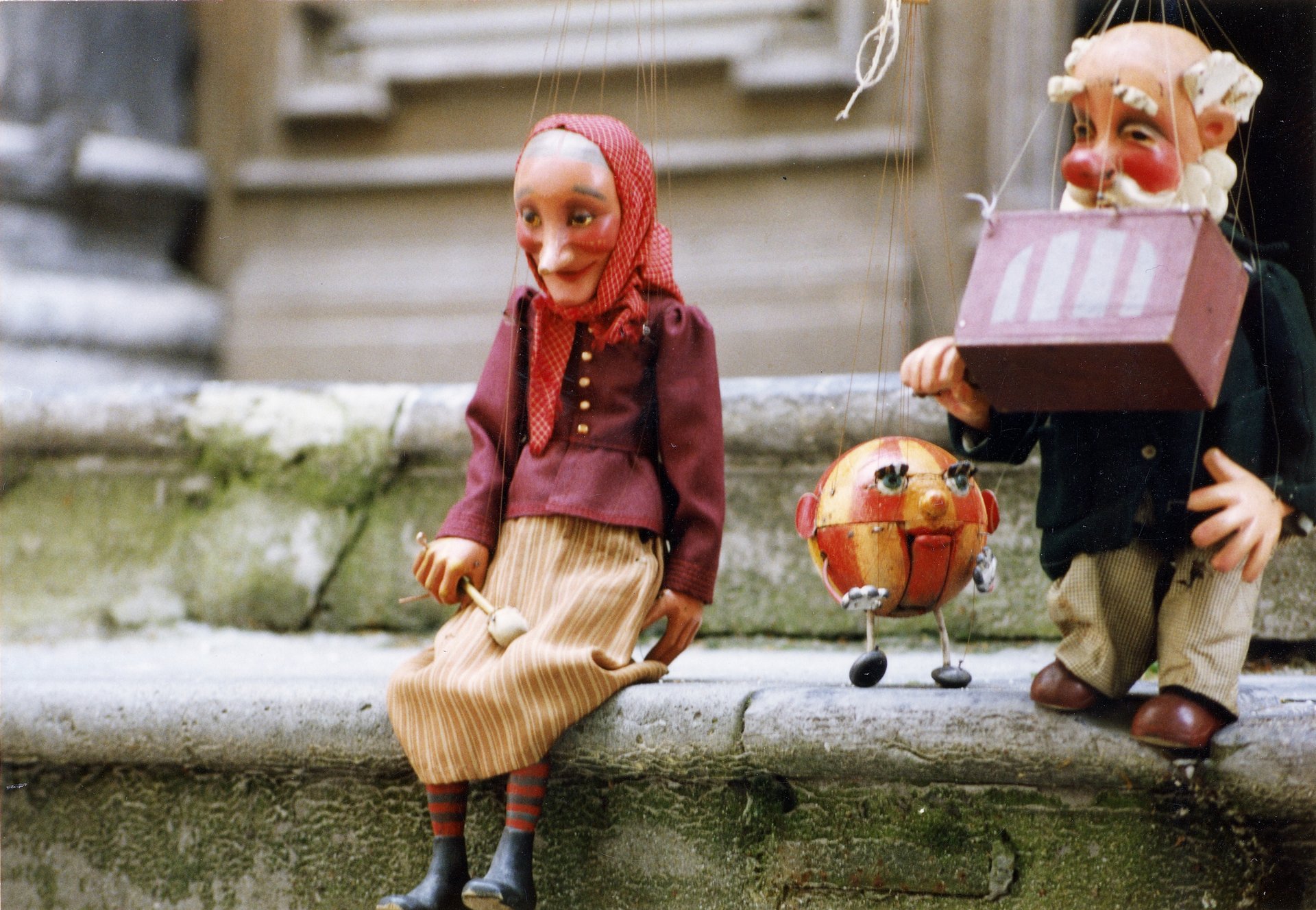Ajša Pengov
1913–1983. B. Vienna, Austria. Lived and worked in Ljubljana, Slovenia, and Sarajevo, BiH.

Ajša Pengov studied Sculpture at the Academy of Fine Arts in Vienna, where she met the Slovenian sculptor Božo Pengov. They married and she moved with him to Ljubljana. There she began working as a puppet designer at what was then the City Puppet Theatre (Mestno lutkovno gledališče, today Ljubljana Puppet Theatre), where she remained from 1950 to 1953. The first production she worked on was Martin Krpan, for which she designed the puppets (for the first and only time) together with her husband. Later, she worked mostly with her brother-in-law Jože Pengov, the director, artistic director, and key figure in the early development of the City Puppet Theatre.
Their most iconic collaboration is perhaps Žogica Marogica (Speckles the Ball), which premiered in 1951 and remained in the repertoire for decades. Revived in 2018, it is still performed today. Based on the story by Czech author Jan Malík, it follows a little ball with all the characteristics of a child, taken in by an elderly couple with no children of their own. Žogica Marogica represented a new path in puppetry, rejecting the tendencies to faithfully replicate human movement and expression, but instead focusing on the puppet itself and emphasising what is unique and most expressive in its physical presence.
Alongside the puppets themselves, we present here a selection of sketches made in the process of constructing the puppets, showing their inner mechanisms and proportions, and indicating their mobility potential. The sketches and puppet from Žogica Marogica are accompanied by those from Zlata Ribica (The Golden Fish), the last production for which Ajša Pengov designed puppets in Ljubljana before moving to Sarajevo, to work in the local puppet theatre. Ajša Pengov paid special attention to the movement of sea animal puppets in an attempt to replicate fish swimming and their scales glistening.
Puppets are on loan from the Museum of Puppetry (Ljubljana Puppet Theatre). Sketches are on loan from the Archive of the Ljubljana Puppet Theatre.

